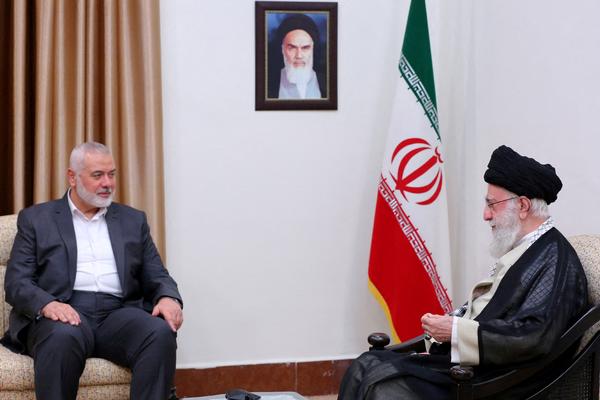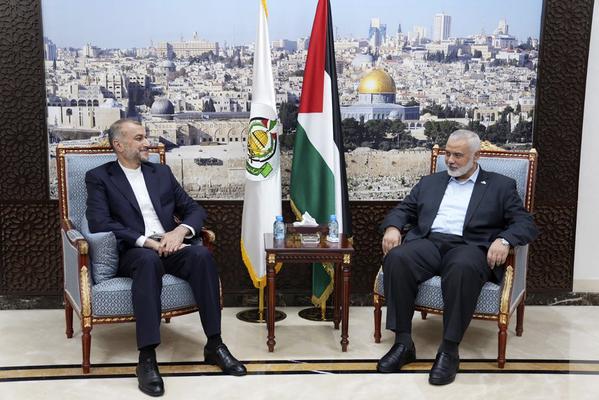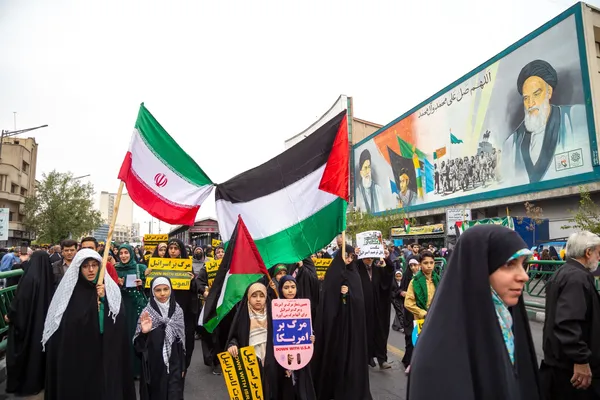



The Complex Relationship Between Hamas and Iran: An In-Depth Analysis
The relationship between Hamas and Iran is a critical element in Middle Eastern geopolitics. This alliance, though fraught with complexities and fluctuations, has profound implications for the regional balance of power. As of 2024, understanding this relationship requires a comprehensive look at its historical context, ideological foundations, strategic benefits, and recent developments.
Historical Background of Hamas-Iran Relationships
Foundation and Early Support
Since its establishment in 1987, Hamas has received significant support from Iran. The relationship solidified during the early 1990s when Hamas leaders deported to Lebanon received training and support from Hezbollah, an Iranian proxy. This period marked the beginning of a strategic partnership that has evolved over decades.
The Role of the IRGC and Hezbollah
The Islamic Revolutionary Guard Corps (IRGC) and Hezbollah played crucial roles in arming and training Hamas. By the early 2000s, Iran had become a major financial backer of Hamas, providing up to $50 million annually and supporting the development of Hamas's rocket capabilities.
Ideological and Strategic Alignments
A Marriage of Convenience
The alliance between Hamas, a Sunni militant organization, and Shiite-majority Iran is often described as a "marriage of convenience." Despite their ideological differences, both entities share a common enemy in Israel, which drives their cooperation.
Shifts During the Syrian Civil War
The Syrian Civil War strained the Hamas-Iran relationship. Hamas's support for the Sunni opposition against Iran-backed Bashar al-Assad led to a significant reduction in Iranian funding. This period saw Hamas seeking alternative sources of support from countries like Turkey and Qatar.
Recent Developments in Hamas-Iran Relations
Renewal of Ties
In recent years, particularly after 2017, there has been a concerted effort to renew and strengthen the Hamas-Iran relationship. Tehran mediated reconciliation between Hamas and the Assad regime, and Iran resumed significant financial and military support.
Iranian Support in 2024
Iran continues to provide substantial backing to Hamas. This includes financial aid, advanced weaponry, and training. The ongoing conflict between Hamas and Israel sees Iran's strategic support as a cornerstone of Hamas's military capabilities.
Impact of the October 7, 2023, Attacks
The October 7, 2023, attacks by Hamas on Israeli targets have highlighted the depth of the Hamas-Iran relationship. Reports indicate that Iranian elements might have been involved in planning and training for these operations, although Iran officially denies direct involvement.
Geopolitical Implications
Regional Power Dynamics
The Hamas-Iran alliance impacts regional power dynamics significantly. Iran's support for Hamas positions it as a central player in the Palestinian-Israeli conflict, thereby extending its influence across the Middle East.
Relations with Other Middle Eastern Countries
Hamas's relationship with Iran complicates its ties with other Middle Eastern nations, especially those aligned against Iranian influence. However, the pragmatic nature of Hamas's alliances allows it to navigate these complexities, seeking support from various quarters when needed.
Conclusion
The Hamas-Iran relationship is a complex and evolving partnership rooted in shared strategic interests rather than ideological alignment. As geopolitical realities shift, so too does the nature of their cooperation. In 2024, understanding this relationship is crucial for comprehending the broader dynamics of Middle Eastern politics and the ongoing conflict between Hamas and Israel.
FAQs
How does Iran support Hamas?
Iran supports Hamas through financial aid, military training, and providing advanced weaponry, including rockets and drones.
What is the significance of the October 7, 2023, attacks?
The attacks underscored the operational capabilities of Hamas, likely enhanced by Iranian training and support, and highlighted the strategic depth of the Hamas-Iran alliance.
How has the Syrian Civil War affected Hamas-Iran relations?
The Syrian Civil War strained relations due to Hamas's support for the Sunni opposition against Iran-backed Assad, leading to reduced Iranian funding. However, relations have since improved with strategic reconciliations.
Why is the Hamas-Iran relationship described as a "marriage of convenience"?
Despite ideological differences, both Hamas and Iran share a common goal of opposing Israel, which forms the basis of their pragmatic alliance.
What role does Hezbollah play in the Hamas-Iran relationship?
Hezbollah, an Iranian proxy, has historically provided training and support to Hamas, particularly in developing its military capabilities.
What are the geopolitical implications of the Hamas-Iran alliance?
This alliance significantly impacts regional power dynamics, extending Iran's influence in the Palestinian-Israeli conflict and affecting its relations with other Middle Eastern nations.
💔 Donate to Support Gaza's Children
Your donation can make a significant difference in the lives of children affected by the crisis in Gaza. Donate now via Bitcoin or Stripe to provide essential aid and support.
Donate Now